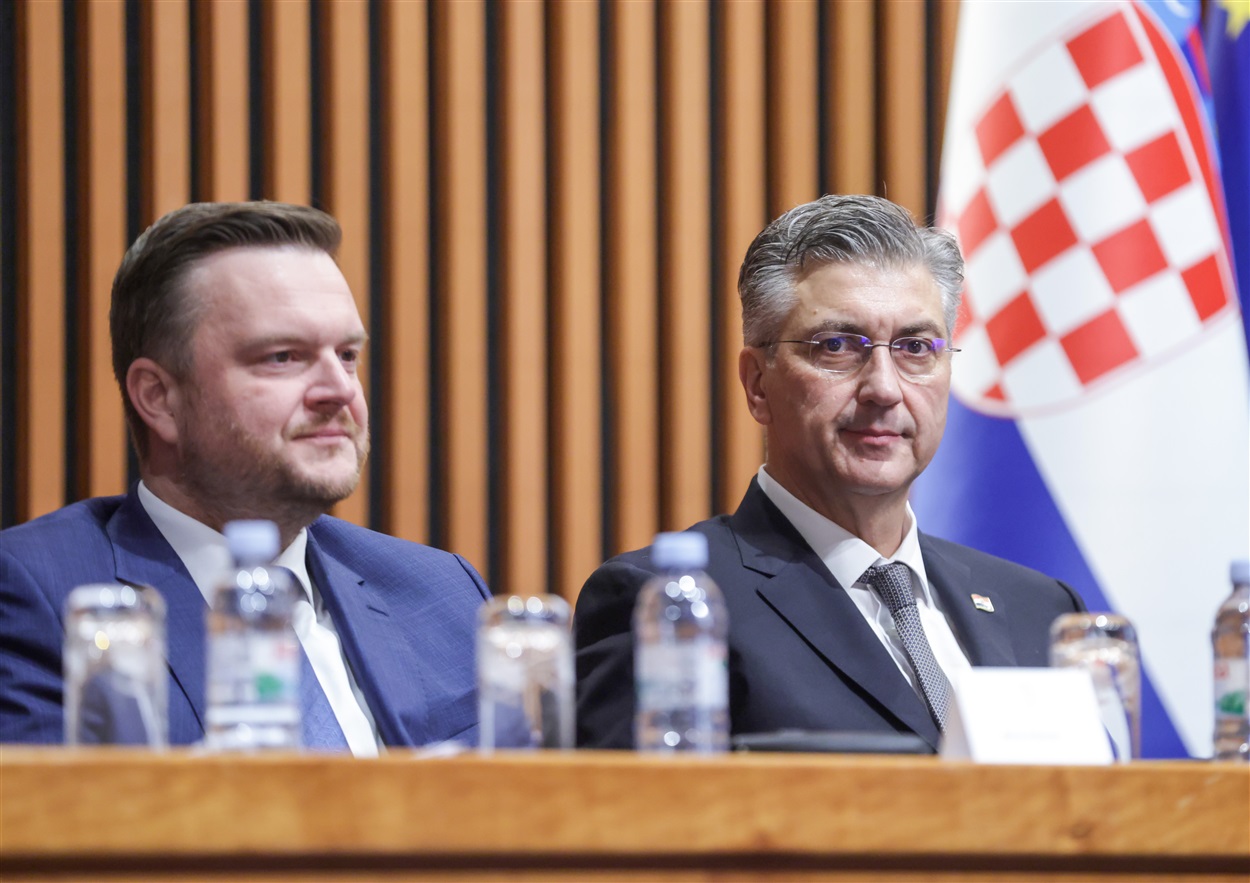
Zagreb - Prime Minister Andrej Plenković on Thursday presented the government's proposal for the 2026 budget in Parliament, describing it as social, sustainable and development-oriented, ensuring investments to increase competitiveness, productivity, and crisis resilience.
The government forecasts €35.7 billion in revenue and €39.8 billion in expenditures. Revenues are €2.7 billion higher than this year's revised budget, while spending is €3 billion higher.
"This budget is social; it protects citizens' living standards and ensures the redistributive role of the state, caring for those who are vulnerable," Plenković said while presenting the 2026 budget, with projections for 2027 and 2028.
He emphasised that the proposed budget is sustainable and demonstrates responsibility toward public finances amid the challenging and uncertain economic conditions facing Europe and the world.
Budget is development-oriented
The budget is development-oriented, providing investments to increase competitiveness, productivity, and resilience to crises, Plenković said, noting that the new budget comes at a time of slowing economic growth in Europe and globally, yet the country continues positive macroeconomic trends and steady growth.
The EU's GDP is projected to grow by 1.4%, the euro area's by 1.2%, while Croatia's economy is expected to grow by 2.7% in 2026 and 2.5% in 2027. Only Ireland, Malta, Cyprus, and Poland are expected to achieve higher growth, he said.
Croatia to finish year at 78% of EU average development level
Croatia is projected to finish the year at 78% of the EU average development level, surpassing Slovakia, Greece, Latvia, and Bulgaria, and reaching the current level of Hungary, Plenković said.
The budget deficit is expected to remain below 3% of GDP in 2026, falling to 2.8% in 2027.
Public debt is projected to decline from 56.3% to 56% of GDP, ensuring compliance with Maastricht criteria.
Plenković highlighted that the budget's expenditures of €39.8 billion (up 8.3%) are balanced by €35.7 billion in revenues (up €2.7 billion), supported by rising business activity, tax revenues, employment, industrial exports, a record tourism year, and successful use of EU funds.
According to the PM, Croatia has received €18 billion more from the EU than it has contributed through its annual membership fees.
Plenković also mentioned upcoming negotiations on the 2028–2034 EU Multiannual Financial Framework, with an expected allocation of €16.8 billion for Croatia, €2 billion more than previously.
Spending priorities: Citizens and vulnerable groups
The budget focuses on improving citizens' quality of life, particularly for the elderly and people with disabilities, he said.
Pensions in 2026 are planned at €10.2 billion, up €1 billion from this year. In addition to regular indexation, pensioners will receive an annual bonus, raising the average pension above €700, Plenković said.
Increased spending also supports wage growth through various income tax relief measures, Plenković said, calling on Zagreb authorities and the We Can! party, which runs the city, to reduce income tax.
The government has revitalised Croatia's capital market, issuing 17 state securities, including, for the first time, three retail bonds, as well as 14 treasury bills. Planned demographic measures for 2026 amount to €804 million, and recent data shows 656 more births in the past three months than last year.
Affordable housing
Affordable housing remains a key priority for young families, underpinning demographic revitalisation. €300 million is allocated for student housing across 18 cities, along with increased scholarships. Social benefits for the needy, especially some 200,000 recipients of inclusive allowance, total €1.3 billion.
Plenković highlighted that inflation has fallen from 11% in 2022 to 3% in 2024 due to government measures, and is projected at 2.8% in 2026.
"The reason inflation remains above acceptable levels is the actions of domestic actors and individuals in the price-setting chain, despite the government having helped them weather the crisis," he said.
Investment priorities
The budget continues to prioritise growth-enhancing and resilience-building investments in digitalisation, decarbonisation, education, and support for the economy. A new industrial strategy will focus on future industries, and regional development remains central, with increased funding for healthcare, education, defence, sports, and underdeveloped areas, Plenković said.
Education spending is now 5% of GDP, he noted.
Finance Minister Marko Primorac emphasised significant investments in defence, energy sector strengthening, and alternative supply routes to enhance Croatia's strategic autonomy in light of global uncertainties.